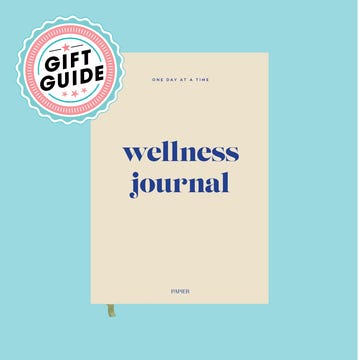Getting older comes with upsides like wisdom, self-assuredness, and even a boost in happiness. Yet there's no sugarcoating the downsides, with memory loss being chief among those. According to the Alzheimer's Association, an estimated 5.3 million Americans of all ages will be diagnosed with Alzheimer's this year, and 5.1 million of them will be 65 and older.
While there's no cure for memory loss, and certain risk factors for Alzheimer's simply can't be prevented (for example, your age or a family history of the disease), new research aims to identify people who are at the highest risk of dementia in the earliest possible stages so that they can work with their doctors on preventing the disease by reversing the risk factors they can change.
Now, research from the Mayo Clinic is paving the way for a scoring system that can help identify people with an elevated risk of developing mild cognitive impairment (MCI), a marker for developing dementia. The study, published in the journal Neurology, looked at 1,449 people between the ages of 70 and 89 who did not have memory or thinking problems, and then followed them over the course of nearly 5 years. The researchers performed check-ups every 15 months to gauge memory and thinking skills. During the study, nearly a third developed MCI, allowing researchers to pinpoint factors that predict an individual's risk of developing dementia.
MORE: 5 Surprising Signs Of Dementia
"Clinicians don't have a lot of time with patients, which is why we wanted to come up with a quick way for people to get a sense of their risk so that they can bring it up with their doctors," says Michelle M. Mielke, PhD, associate professor in the department of health sciences research at the Mayo Clinic and co-author of the study. "This way, your doc can do further testing and better monitor any signs of MCI—and you can take steps to make sure these risk factors are controlled."
Want to get a sense of your risk? While the questions Mielke and her team developed are currently being reviewed and modified for widespread use, here are a few to ask yourself—and bring up with your doc if you've answered "yes" to 3 or more:
Do you have diabetes?
Were you ever diagnosed with an alcohol problem?
Do you have any self-reported memory concerns?
Do you have less than 12 years of education?
Do you have heart problems, such as a history of arterial fibrillation?
If you're a woman, answer the following additional questions:
Are you a current smoker?
Have you been diagnosed with diabetes in midlife?
Have you been diagnosed with high blood pressure in mid life?
If you're a man, answer the following questions:
Are you a widow, or never been married?
Is your body mass index greater than 30 kg/m?
If you decide to discuss your risk with your doctor, she may choose to do a brief cognitive screening, says Mielke. This can provide a sense of your cognitive health. If your physician is concerned, she may refer you to a neuropsychologist, who will do more extensive cognitive testing to check for CMI, dementia or Alzheimer's disease.
Also, keep in mind that while two big risk factors for dementia—age and family history—can't be changed, there are a number of other risk factors that you do have more control over. To give yourself the best shot at optimal brain health for many years to come:
Keep your heart healthy.
"In general, what is good for the heart is good for the brain," says Mielke, thanks to the fact that every heartbeat pumps about 25% of your blood to your head, where your brain cells use the food and oxygen your blood carries. (Check out these 6 simple habits that can cut your risk of heart disease by 92%.)
Eat well and exercise.
Following a healthy diet and exercise routine can help stave off conditions such as diabetes, hypertension, obesity, and high cholesterol—all risk factors for cardiovascular disease and cognitive issues.
MORE: 4 Simple Ways To Help Keep Alzheimer's Out Of Your Future
Protect your noggin.
When you're biking, skiing, white water rafting, rock climbing, or participating in another activity that presents the risk of head trauma, be sure to wear a helmet. Research shows a strong link between serious head injury and future risk of Alzheimer's, especially when it involves loss of consciousness. (This is good reason to fall-proof your home as you get older, too.)














